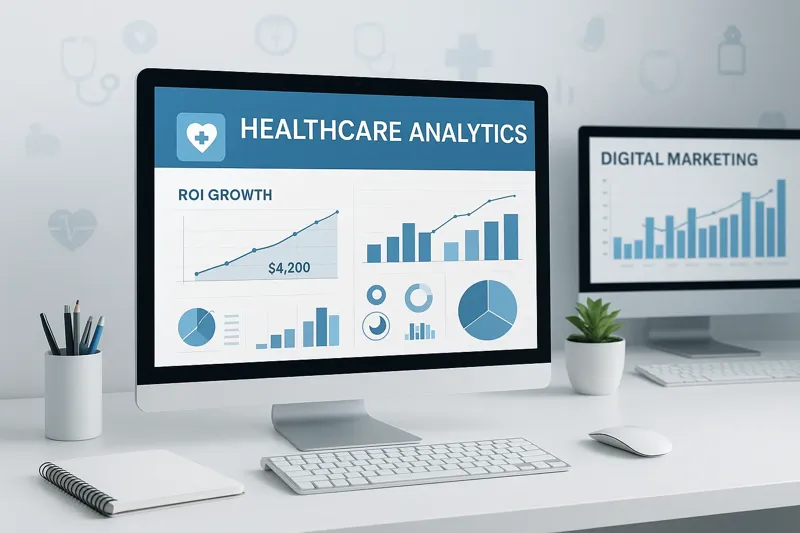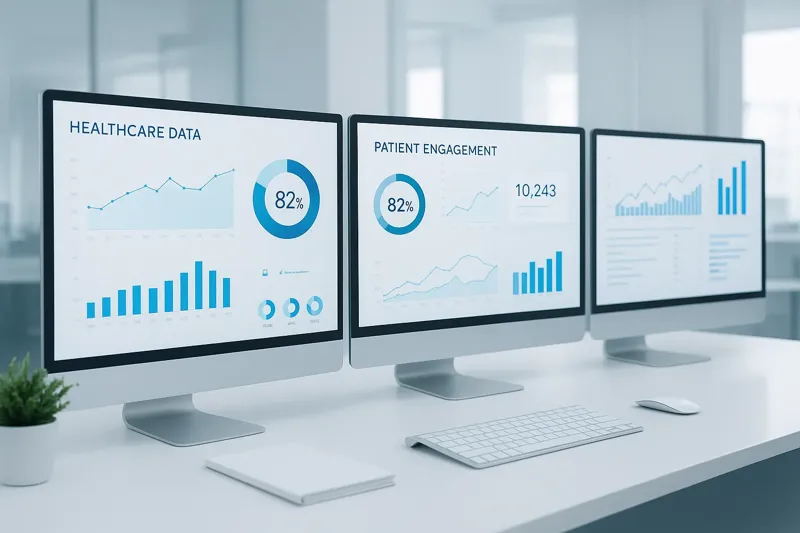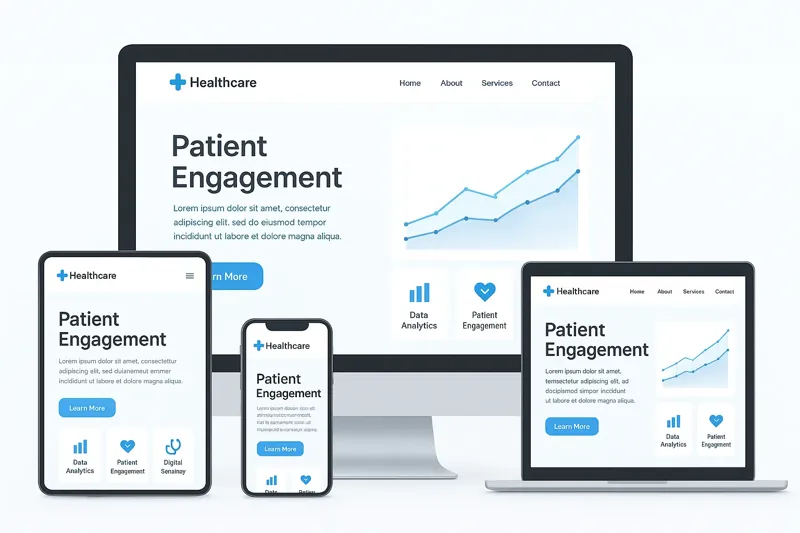Introduction to Future Digital Marketing Shifts
As digital landscapes evolve rapidly, understanding forthcoming trends in marketing becomes vital for brands aiming to stay competitive. The next five years promise transformative shifts powered by AI, emerging platforms, and deeper consumer insights. This article explores pivotal digital marketing predictions that will define success and innovation in the near future.
Digital Marketing Future Key Facts
- AI and generative AI are driving automation, hyper-personalization, and enhanced customer experiences in digital marketing.
- Emerging digital channels like social commerce, short-form videos, voice, visual search, and AR/VR will gain prominence by 2025.
- The global digital marketing industry is expected to reach approximately $1.5 trillion by 2030 with a focus on social media and AI-driven analytics.
- Sustainability and inclusion are becoming essential in digital marketing, emphasizing authentic storytelling and transparency.
- Future strategies include integrating AI analytics, ethical data practices, omnichannel engagement, and continuous skill development.
- Key trends include personalized content, immersive experiences, responsible data use, and influencer collaborations.
- Advanced AI tools will enable hyper-targeted, real-time campaigns that adapt quickly to consumer behavior.
- New platforms like TikTok, Reels, Shorts, and metaverse environments are pivotal for engaging modern audiences.
- Brands that embrace societal values such as sustainability and diversity will gain competitive advantages.
- Skills in AI technology, data privacy, and social listening will be crucial for marketers aiming for future success.
1. AI and Generative AI Revolutionizing Digital Marketing

How will technological advancements like AI and generative AI shape digital marketing?
The rapid evolution of AI and generative AI is transforming the landscape of digital marketing in profound ways. These technologies enable brands to deliver highly personalized experiences in real-time, creating a more engaging and relevant customer journey.
One major impact is automation. AI-driven systems can now handle complex tasks such as content creation, campaign optimization, and customer interactions with minimal human intervention. For example, AI chatbots and virtual assistants provide instant customer support, while automated content tools like ChatGPT generate articles, social media posts, and even product descriptions efficiently.
Hyper-personalization at scale is another significant breakthrough. AI analyzes vast amounts of data to predict customer preferences and behavior, allowing companies to tailor recommendations, offers, and messaging for individual users. This not only enhances user satisfaction but also increases conversions and loyalty.
AI also enhances e-commerce experiences. Features like dynamic pricing, visual search, and voice commerce make online shopping more intuitive and personalized. For instance, visual search tools enable consumers to find products using images, while voice assistants facilitate seamless voice-based transactions.
Furthermore, the growth of AI-powered agents capable of controlling entire marketing systems marks a new era of autonomous marketing. These agents can execute tasks such as running campaigns, conducting A/B testing, and adjusting strategies based on performance metrics, significantly reducing operational costs and improving agility.
The integration of these advanced AI tools means that marketing strategies will become increasingly data-driven. Predictive analytics and sophisticated data analysis will allow brands to anticipate consumer needs, optimize marketing spend, and adapt quickly to market changes.
Overall, AI and generative AI are set to be the backbone of future digital marketing efforts. They foster innovation, boost efficiency, and enable brands to stay competitive in an ever-more digital world. As these technologies become more advanced and accessible, their influence will continue expanding, making AI an essential component of marketing success.
2. Emergence and Expansion of New Digital Channels and Platforms

Which emerging digital marketing channels and platforms are expected to gain prominence?
The landscape of digital marketing is evolving rapidly, with several new channels and platforms set to take center stage in 2025. Social commerce features on popular platforms such as Instagram, Facebook, and Pinterest are becoming vital. These platforms now enable brands to embed shoppable content directly within posts, stories, and pins, allowing consumers to purchase products seamlessly without leaving the app. Influencer collaborations and user-generated content further amplify the impact of social commerce, making online shopping more authentic and engaging.
Video content continues to be a dominant force. Short-form videos, like TikTok clips, Instagram Reels, and YouTube Shorts, are favored due to their quick, engaging nature. Livestreaming is also on the rise, providing real-time interaction between brands and audiences. This combination meets consumer demand for instant, entertaining, and authentic experiences while allowing brands to showcase products dynamically.
Voice search and visual search are expanding rapidly. With the proliferation of smart speakers and voice-enabled devices, optimizing content for voice queries has become imperative. Marketers need to focus on natural language, long-tail keywords, and concise answers. Visual search platforms, including Google Lens and Pinterest, are changing how consumers discover products. High-quality visual content and descriptive tags are crucial for visibility in these channels.
Augmented reality (AR) and virtual reality (VR) are transforming how brands engage with customers. AR allows consumers to virtually try on clothes, preview furniture in their homes, or see how products work in a lifelike environment. VR offers immersive experiences, virtual showrooms, and remote collaborations, effectively bridging online and offline retail through 'phygital' strategies. This immersive approach increases engagement and helps consumers make informed purchase decisions.
AI-driven automation and generative AI tools are also reshaping campaign creation, content personalization, and customer interaction. These technologies facilitate hyper-personalized, seamless multi-channel experiences, adjusting messaging and offers in real-time based on user behavior.
Below is a detailed overview of these emerging platforms:
| Platform/Channel | Focus Area | Expected Impact | Additional Details |
|---|---|---|---|
| Social Commerce | Shoppable posts, influencer collaborations | Higher engagement, direct conversions | Embedded purchasing, seamless checkout via social apps |
| Short-Form Video & Livestreaming | Quick, engaging content, live interaction | Greater reach, real-time feedback | TikTok, Reels, Shorts, live shopping events |
| Voice Search | Natural language queries, smart speaker optimization | Improved visibility in voice searches | Long-tail keywords, concise, conversational content |
| Visual Search | Image-based discovery, product finding | Increased product discovery and sales | Google Lens, Pinterest, optimized visuals, descriptive tags |
| AR & VR | Immersive shopping experiences, virtual try-ons | Enhanced engagement, reduced returns | Virtual fitting rooms, virtual showrooms, AR ads |
| AI & Generative Tools | Content creation, personalization, automation | Streamlined workflows, improved relevance | Chatbots, content generators, campaign optimization tools |
Looking beyond individual platforms, the concept of convergence is gaining momentum. Many platforms like Google, LinkedIn, and Meta are integrating features that blur traditional boundaries, making cross-channel campaign management more seamless. The goal is to create unified, omnichannel experiences where consumers can switch effortlessly between digital and physical interactions.
In summary, the next wave of digital marketing will heavily depend on these innovative channels. Marketers who adapt early and leverage the capabilities of social commerce, short videos, AR/VR, and AI will be better positioned to engage audiences, drive sales, and build lasting brand loyalty in 2025 and beyond.
3. Industry Forecasts and Expert Predictions Through 2030

What are the industry forecasts and expert predictions for digital marketing developments by 2030?
Projections indicate that by 2030, the global digital marketing landscape will be valued at approximately $1.5 trillion. This substantial growth will be driven by ongoing advancements in artificial intelligence (AI), automation, and immersive technologies like virtual and augmented reality, which are reshaping how brands interact with consumers.
Consumer behavior is expected to shift even further towards social media platforms. Current trends suggest that around 74% of users will browse and make purchases through social channels, pushing brands to prioritize social selling and develop more personalized, AI-driven marketing strategies. The focus will be on delivering highly targeted content that resonates with individual preferences, utilizing sophisticated analytics tools.
Mobile marketing will continue to dominate, with brands leveraging personalized messaging and secure, user-friendly technologies to engage customers on the go. Content optimized for mobile devices, including short-form videos, interactive features, and secure payment options, will be essential.
In particular, the growth in video and search advertising will remain significant. Video content—especially short-form video—will be a primary medium for capturing attention in a decreasing attention span environment. Data-driven advertising solutions, powered by AI and machine learning, will enable marketers to craft more effective campaigns by analyzing granular consumer insights.
Regionally, Asia-Pacific is expected to experience considerable expansion, driven by rapid technological adoption, increasing internet penetration, and evolving digital infrastructure. These developments will facilitate new opportunities for local and global brands to reach diverse audiences.
Experts emphasize that to keep pace with these changes, marketers must invest in skill development. Critical abilities will include social listening, understanding shifting consumer values, and building authentic relationships. Continuous learning through educational resources, certifications, and industry events will be vital for professionals aiming to stay relevant.
Overall, the era through 2030 will see a convergence of innovative technologies and data-centric strategies, creating a more dynamic, personalized, and immersive digital marketing ecosystem that continuously adapts to consumer needs and technological advancements.
4. Sustainability, Inclusion, and Ethical Marketing as Strategic Pillars

What role will sustainability and inclusion trends play in shaping future digital marketing?
Sustainability and inclusion are set to become critical elements in the landscape of digital marketing. As consumer awareness around social and environmental issues grows, brands will need to prioritize authentic storytelling around their eco-friendly practices and diversity initiatives. This approach not only fosters trust but also aligns with an increasing demand for socially responsible consumption.
Marketers will focus on transparent communications, explicitly avoiding greenwashing, which is the practice of falsely portraying products or practices as environmentally friendly. Instead, genuine efforts will include sharing measurable sustainability results and demonstrating real impact through data-driven campaigns. This transparency helps to build credibility and deepen consumer trust.
Digital campaigns will increasingly employ eco-conscious content, optimizing resources, and engaging communities through cause marketing and interactive initiatives. For example, brands may highlight their renewable energy usage or promote inclusive product lines, emphasizing shared values.
Advancements in artificial intelligence and evolving search behaviors—such as social, voice, and visual search—will facilitate tailored, accessible experiences that reflect these core values. AI tools will help craft personalized content that resonates with diverse audiences, promoting inclusivity.
Incorporating sustainability and inclusion into digital marketing is not just about branding; it’s a strategic move that offers competitive advantages. Brands committed to these principles will foster stronger, trust-based relationships with consumers who increasingly prefer to support socially conscious companies.
Ultimately, forward-thinking brands that embed authenticity in their sustainability and inclusion efforts will lead the way, influencing industry standards and customer expectations in the years to come.
5. Strategic Planning and Data-Driven Insights for Future Growth
What strategic approaches should businesses adopt to plan for future digital marketing growth?
To prepare for the rapidly evolving digital marketing landscape, organizations need to adopt comprehensive and forward-looking strategies centered around data, technology, and ethics. One of the most important moves is integrating AI-powered data analytics and predictive insights into their decision-making processes. These tools allow businesses to analyze consumer behavior in real-time, forecast trends, and personalize experiences at scale, ensuring that marketing efforts remain relevant and engaging.
Harnessing first-party data along with privacy-focused data strategies is crucial. With increasing privacy regulations such as GDPR and CCPA, brands must prioritize transparency and ethical data collection. Building trust with consumers through clear privacy policies and consent-based data collection not only complies with regulations but also enhances loyalty.
Building agile, multi-channel marketing strategies is essential. This involves unifying digital and physical touchpoints into seamless omnichannel experiences. Platforms like social media, voice-enabled devices, and immersive AR/VR environments offer new avenues for engagement. By integrating these channels, brands can reach consumers wherever they are and deliver consistent, relevant messages.
Teams need to be equipped with future-ready skills. Upskilling in AI technology, data analysis, and soft skills like collaboration and creative thinking will be vital. Investment in talent and ongoing training ensures marketing teams can adapt quickly to innovations and maintain a competitive edge.
Finally, ethical considerations in data use and AI deployment are becoming increasingly significant. Marketers must prioritize honest, inclusive, and sustainable content strategies. Transparent AI usage builds trust, while emphasizing authenticity and social responsibility can differentiate brands and foster deeper connections with consumers.
| Strategy Area | Focus | Benefits | Implementation Examples |
|---|---|---|---|
| Data Analytics | AI and predictive insights | Enhanced decision-making and personalization | Using AI tools like ChatGPT for content planning |
| Privacy & Ethics | First-party data & transparency | Trust-building & regulatory compliance | Clear opt-in policies & minimal data collection |
| Channel Integration | Seamless omnichannel experiences | Improved customer journey & retention | Unified platforms managing email, social, and in-store data |
| Skill Development | Upskilling teams | Innovation & agility | Training in AI tools and ethical marketing practices |
By adopting these strategies, businesses will position themselves for sustainable growth in a future where technology and consumer expectations continue to advance rapidly.
Comprehensive Digital Marketing Trends for the Next Five Years

What are the future trends in digital marketing over the next five years?
The landscape of digital marketing is poised for dramatic transformations driven by technological innovations and evolving consumer expectations. Over the next five years, artificial intelligence (AI) will be at the core of these changes, fundamentally reshaping how brands connect with their audiences.
AI advancements, particularly generative AI, will enable marketers to craft highly personalized content in real-time. This will go beyond simple segmentation to offer hyper-tailored experiences, increasing customer engagement and loyalty. Campaign automation will become more sophisticated, with AI handling tasks like content creation, data analysis, and optimization, freeing up human resources for strategic activities.
Search methods will also evolve significantly. Voice search, visual search, and social platform integration will dominate, making it essential for brands to optimize for natural language queries and visually rich content. Platforms like TikTok, YouTube Shorts, and augmented reality/virtual reality (AR/VR) environments will provide immersive experiences that capture consumer attention more effectively.
An omnichannel approach will be crucial, blending physical retail, online storefronts, social media, streaming, and emerging metaverse spaces into a seamless customer journey. Personalization at scale, enabled by AI, will foster meaningful connections, increasing conversion rates and customer lifetime value.
Data privacy trends will shift from a challenge to an opportunity, emphasizing the use of first-party data, transparent practices, and clear consent mechanisms. Building trust will be key, with brands showcasing their commitment to responsible data handling.
The creator economy and influencer marketing will continue its ascendancy. Authentic content created by micro- and nano-influencers will be preferred to traditional advertising, fostering community and trust around brand narratives.
Sustainability and inclusivity will become strategic pillars, aligning marketing efforts with societal values. Brands that authentically communicate their commitments to social and environmental causes will stand out, fostering loyalty and long-term growth.
Overall, the future of digital marketing will be characterized by intelligent personalization, immersive experiences, ethical data practices, and meaningful community engagement, shaping a consumer-centric ecosystem that balances technological innovation with societal values.
Conclusion: Navigating Tomorrow’s Digital Marketing Landscape
Looking ahead, digital marketing’s evolution will be shaped fundamentally by intelligent technology, emerging platforms, and changing consumer expectations. Brands that embrace AI-driven personalization, build authentic, inclusive messaging, and agilely adapt to new channels are poised to lead the market. Strategic investment in data-driven insights, sustainable practices, and skill development will underpin the ability to anticipate and capitalize on this dynamic environment. Ultimately, success in the next five years will come to those who balance innovation with ethical transparency, harnessing technology while preserving genuine connections with their audiences.
References
- What are the Digital Marketing Trends for 2025?
- Marketing Trends of 2025 - Deloitte Digital
- 2025 Digital Media Trends | Deloitte Insights
- The Future Of Digital Marketing: Trends To Watch In 2025 - Forbes
- Digital Marketing Trends 2025 | TheeDigital
- The Future of Marketing: 6 Trends and Predictions for 2025 - Gartner
- The Future of Marketing Strategy: 5 Predictions for 2025 - WSI World
- Marketing Trends 2025 - Kantar
- McKinsey technology trends outlook 2025
- 12 Key Digital Marketing Trends to Know in 2025 - Workamajig
Introduction to Future Digital Marketing Shifts
As digital landscapes evolve rapidly, understanding forthcoming trends in marketing becomes vital for brands aiming to stay competitive. The next five years promise transformative shifts powered by AI, emerging platforms, and deeper consumer insights. This article explores pivotal digital marketing predictions that will define success and innovation in the near future.
Digital Marketing Future Key Facts
- AI and generative AI are driving automation, hyper-personalization, and enhanced customer experiences in digital marketing.
- Emerging digital channels like social commerce, short-form videos, voice, visual search, and AR/VR will gain prominence by 2025.
- The global digital marketing industry is expected to reach approximately $1.5 trillion by 2030 with a focus on social media and AI-driven analytics.
- Sustainability and inclusion are becoming essential in digital marketing, emphasizing authentic storytelling and transparency.
- Future strategies include integrating AI analytics, ethical data practices, omnichannel engagement, and continuous skill development.
- Key trends include personalized content, immersive experiences, responsible data use, and influencer collaborations.
- Advanced AI tools will enable hyper-targeted, real-time campaigns that adapt quickly to consumer behavior.
- New platforms like TikTok, Reels, Shorts, and metaverse environments are pivotal for engaging modern audiences.
- Brands that embrace societal values such as sustainability and diversity will gain competitive advantages.
- Skills in AI technology, data privacy, and social listening will be crucial for marketers aiming for future success.
1. AI and Generative AI Revolutionizing Digital Marketing

How will technological advancements like AI and generative AI shape digital marketing?
The rapid evolution of AI and generative AI is transforming the landscape of digital marketing in profound ways. These technologies enable brands to deliver highly personalized experiences in real-time, creating a more engaging and relevant customer journey.
One major impact is automation. AI-driven systems can now handle complex tasks such as content creation, campaign optimization, and customer interactions with minimal human intervention. For example, AI chatbots and virtual assistants provide instant customer support, while automated content tools like ChatGPT generate articles, social media posts, and even product descriptions efficiently.
Hyper-personalization at scale is another significant breakthrough. AI analyzes vast amounts of data to predict customer preferences and behavior, allowing companies to tailor recommendations, offers, and messaging for individual users. This not only enhances user satisfaction but also increases conversions and loyalty.
AI also enhances e-commerce experiences. Features like dynamic pricing, visual search, and voice commerce make online shopping more intuitive and personalized. For instance, visual search tools enable consumers to find products using images, while voice assistants facilitate seamless voice-based transactions.
Furthermore, the growth of AI-powered agents capable of controlling entire marketing systems marks a new era of autonomous marketing. These agents can execute tasks such as running campaigns, conducting A/B testing, and adjusting strategies based on performance metrics, significantly reducing operational costs and improving agility.
The integration of these advanced AI tools means that marketing strategies will become increasingly data-driven. Predictive analytics and sophisticated data analysis will allow brands to anticipate consumer needs, optimize marketing spend, and adapt quickly to market changes.
Overall, AI and generative AI are set to be the backbone of future digital marketing efforts. They foster innovation, boost efficiency, and enable brands to stay competitive in an ever-more digital world. As these technologies become more advanced and accessible, their influence will continue expanding, making AI an essential component of marketing success.
2. Emergence and Expansion of New Digital Channels and Platforms

Which emerging digital marketing channels and platforms are expected to gain prominence?
The landscape of digital marketing is evolving rapidly, with several new channels and platforms set to take center stage in 2025. Social commerce features on popular platforms such as Instagram, Facebook, and Pinterest are becoming vital. These platforms now enable brands to embed shoppable content directly within posts, stories, and pins, allowing consumers to purchase products seamlessly without leaving the app. Influencer collaborations and user-generated content further amplify the impact of social commerce, making online shopping more authentic and engaging.
Video content continues to be a dominant force. Short-form videos, like TikTok clips, Instagram Reels, and YouTube Shorts, are favored due to their quick, engaging nature. Livestreaming is also on the rise, providing real-time interaction between brands and audiences. This combination meets consumer demand for instant, entertaining, and authentic experiences while allowing brands to showcase products dynamically.
Voice search and visual search are expanding rapidly. With the proliferation of smart speakers and voice-enabled devices, optimizing content for voice queries has become imperative. Marketers need to focus on natural language, long-tail keywords, and concise answers. Visual search platforms, including Google Lens and Pinterest, are changing how consumers discover products. High-quality visual content and descriptive tags are crucial for visibility in these channels.
Augmented reality (AR) and virtual reality (VR) are transforming how brands engage with customers. AR allows consumers to virtually try on clothes, preview furniture in their homes, or see how products work in a lifelike environment. VR offers immersive experiences, virtual showrooms, and remote collaborations, effectively bridging online and offline retail through 'phygital' strategies. This immersive approach increases engagement and helps consumers make informed purchase decisions.
AI-driven automation and generative AI tools are also reshaping campaign creation, content personalization, and customer interaction. These technologies facilitate hyper-personalized, seamless multi-channel experiences, adjusting messaging and offers in real-time based on user behavior.
Below is a detailed overview of these emerging platforms:
| Platform/Channel | Focus Area | Expected Impact | Additional Details |
|---|---|---|---|
| Social Commerce | Shoppable posts, influencer collaborations | Higher engagement, direct conversions | Embedded purchasing, seamless checkout via social apps |
| Short-Form Video & Livestreaming | Quick, engaging content, live interaction | Greater reach, real-time feedback | TikTok, Reels, Shorts, live shopping events |
| Voice Search | Natural language queries, smart speaker optimization | Improved visibility in voice searches | Long-tail keywords, concise, conversational content |
| Visual Search | Image-based discovery, product finding | Increased product discovery and sales | Google Lens, Pinterest, optimized visuals, descriptive tags |
| AR & VR | Immersive shopping experiences, virtual try-ons | Enhanced engagement, reduced returns | Virtual fitting rooms, virtual showrooms, AR ads |
| AI & Generative Tools | Content creation, personalization, automation | Streamlined workflows, improved relevance | Chatbots, content generators, campaign optimization tools |
Looking beyond individual platforms, the concept of convergence is gaining momentum. Many platforms like Google, LinkedIn, and Meta are integrating features that blur traditional boundaries, making cross-channel campaign management more seamless. The goal is to create unified, omnichannel experiences where consumers can switch effortlessly between digital and physical interactions.
In summary, the next wave of digital marketing will heavily depend on these innovative channels. Marketers who adapt early and leverage the capabilities of social commerce, short videos, AR/VR, and AI will be better positioned to engage audiences, drive sales, and build lasting brand loyalty in 2025 and beyond.
3. Industry Forecasts and Expert Predictions Through 2030

What are the industry forecasts and expert predictions for digital marketing developments by 2030?
Projections indicate that by 2030, the global digital marketing landscape will be valued at approximately $1.5 trillion. This substantial growth will be driven by ongoing advancements in artificial intelligence (AI), automation, and immersive technologies like virtual and augmented reality, which are reshaping how brands interact with consumers.
Consumer behavior is expected to shift even further towards social media platforms. Current trends suggest that around 74% of users will browse and make purchases through social channels, pushing brands to prioritize social selling and develop more personalized, AI-driven marketing strategies. The focus will be on delivering highly targeted content that resonates with individual preferences, utilizing sophisticated analytics tools.
Mobile marketing will continue to dominate, with brands leveraging personalized messaging and secure, user-friendly technologies to engage customers on the go. Content optimized for mobile devices, including short-form videos, interactive features, and secure payment options, will be essential.
In particular, the growth in video and search advertising will remain significant. Video content—especially short-form video—will be a primary medium for capturing attention in a decreasing attention span environment. Data-driven advertising solutions, powered by AI and machine learning, will enable marketers to craft more effective campaigns by analyzing granular consumer insights.
Regionally, Asia-Pacific is expected to experience considerable expansion, driven by rapid technological adoption, increasing internet penetration, and evolving digital infrastructure. These developments will facilitate new opportunities for local and global brands to reach diverse audiences.
Experts emphasize that to keep pace with these changes, marketers must invest in skill development. Critical abilities will include social listening, understanding shifting consumer values, and building authentic relationships. Continuous learning through educational resources, certifications, and industry events will be vital for professionals aiming to stay relevant.
Overall, the era through 2030 will see a convergence of innovative technologies and data-centric strategies, creating a more dynamic, personalized, and immersive digital marketing ecosystem that continuously adapts to consumer needs and technological advancements.
4. Sustainability, Inclusion, and Ethical Marketing as Strategic Pillars

What role will sustainability and inclusion trends play in shaping future digital marketing?
Sustainability and inclusion are set to become critical elements in the landscape of digital marketing. As consumer awareness around social and environmental issues grows, brands will need to prioritize authentic storytelling around their eco-friendly practices and diversity initiatives. This approach not only fosters trust but also aligns with an increasing demand for socially responsible consumption.
Marketers will focus on transparent communications, explicitly avoiding greenwashing, which is the practice of falsely portraying products or practices as environmentally friendly. Instead, genuine efforts will include sharing measurable sustainability results and demonstrating real impact through data-driven campaigns. This transparency helps to build credibility and deepen consumer trust.
Digital campaigns will increasingly employ eco-conscious content, optimizing resources, and engaging communities through cause marketing and interactive initiatives. For example, brands may highlight their renewable energy usage or promote inclusive product lines, emphasizing shared values.
Advancements in artificial intelligence and evolving search behaviors—such as social, voice, and visual search—will facilitate tailored, accessible experiences that reflect these core values. AI tools will help craft personalized content that resonates with diverse audiences, promoting inclusivity.
Incorporating sustainability and inclusion into digital marketing is not just about branding; it’s a strategic move that offers competitive advantages. Brands committed to these principles will foster stronger, trust-based relationships with consumers who increasingly prefer to support socially conscious companies.
Ultimately, forward-thinking brands that embed authenticity in their sustainability and inclusion efforts will lead the way, influencing industry standards and customer expectations in the years to come.
5. Strategic Planning and Data-Driven Insights for Future Growth
What strategic approaches should businesses adopt to plan for future digital marketing growth?
To prepare for the rapidly evolving digital marketing landscape, organizations need to adopt comprehensive and forward-looking strategies centered around data, technology, and ethics. One of the most important moves is integrating AI-powered data analytics and predictive insights into their decision-making processes. These tools allow businesses to analyze consumer behavior in real-time, forecast trends, and personalize experiences at scale, ensuring that marketing efforts remain relevant and engaging.
Harnessing first-party data along with privacy-focused data strategies is crucial. With increasing privacy regulations such as GDPR and CCPA, brands must prioritize transparency and ethical data collection. Building trust with consumers through clear privacy policies and consent-based data collection not only complies with regulations but also enhances loyalty.
Building agile, multi-channel marketing strategies is essential. This involves unifying digital and physical touchpoints into seamless omnichannel experiences. Platforms like social media, voice-enabled devices, and immersive AR/VR environments offer new avenues for engagement. By integrating these channels, brands can reach consumers wherever they are and deliver consistent, relevant messages.
Teams need to be equipped with future-ready skills. Upskilling in AI technology, data analysis, and soft skills like collaboration and creative thinking will be vital. Investment in talent and ongoing training ensures marketing teams can adapt quickly to innovations and maintain a competitive edge.
Finally, ethical considerations in data use and AI deployment are becoming increasingly significant. Marketers must prioritize honest, inclusive, and sustainable content strategies. Transparent AI usage builds trust, while emphasizing authenticity and social responsibility can differentiate brands and foster deeper connections with consumers.
| Strategy Area | Focus | Benefits | Implementation Examples |
|---|---|---|---|
| Data Analytics | AI and predictive insights | Enhanced decision-making and personalization | Using AI tools like ChatGPT for content planning |
| Privacy & Ethics | First-party data & transparency | Trust-building & regulatory compliance | Clear opt-in policies & minimal data collection |
| Channel Integration | Seamless omnichannel experiences | Improved customer journey & retention | Unified platforms managing email, social, and in-store data |
| Skill Development | Upskilling teams | Innovation & agility | Training in AI tools and ethical marketing practices |
By adopting these strategies, businesses will position themselves for sustainable growth in a future where technology and consumer expectations continue to advance rapidly.
Comprehensive Digital Marketing Trends for the Next Five Years

What are the future trends in digital marketing over the next five years?
The landscape of digital marketing is poised for dramatic transformations driven by technological innovations and evolving consumer expectations. Over the next five years, artificial intelligence (AI) will be at the core of these changes, fundamentally reshaping how brands connect with their audiences.
AI advancements, particularly generative AI, will enable marketers to craft highly personalized content in real-time. This will go beyond simple segmentation to offer hyper-tailored experiences, increasing customer engagement and loyalty. Campaign automation will become more sophisticated, with AI handling tasks like content creation, data analysis, and optimization, freeing up human resources for strategic activities.
Search methods will also evolve significantly. Voice search, visual search, and social platform integration will dominate, making it essential for brands to optimize for natural language queries and visually rich content. Platforms like TikTok, YouTube Shorts, and augmented reality/virtual reality (AR/VR) environments will provide immersive experiences that capture consumer attention more effectively.
An omnichannel approach will be crucial, blending physical retail, online storefronts, social media, streaming, and emerging metaverse spaces into a seamless customer journey. Personalization at scale, enabled by AI, will foster meaningful connections, increasing conversion rates and customer lifetime value.
Data privacy trends will shift from a challenge to an opportunity, emphasizing the use of first-party data, transparent practices, and clear consent mechanisms. Building trust will be key, with brands showcasing their commitment to responsible data handling.
The creator economy and influencer marketing will continue its ascendancy. Authentic content created by micro- and nano-influencers will be preferred to traditional advertising, fostering community and trust around brand narratives.
Sustainability and inclusivity will become strategic pillars, aligning marketing efforts with societal values. Brands that authentically communicate their commitments to social and environmental causes will stand out, fostering loyalty and long-term growth.
Overall, the future of digital marketing will be characterized by intelligent personalization, immersive experiences, ethical data practices, and meaningful community engagement, shaping a consumer-centric ecosystem that balances technological innovation with societal values.
Conclusion: Navigating Tomorrow’s Digital Marketing Landscape
Looking ahead, digital marketing’s evolution will be shaped fundamentally by intelligent technology, emerging platforms, and changing consumer expectations. Brands that embrace AI-driven personalization, build authentic, inclusive messaging, and agilely adapt to new channels are poised to lead the market. Strategic investment in data-driven insights, sustainable practices, and skill development will underpin the ability to anticipate and capitalize on this dynamic environment. Ultimately, success in the next five years will come to those who balance innovation with ethical transparency, harnessing technology while preserving genuine connections with their audiences.
References
- What are the Digital Marketing Trends for 2025?
- Marketing Trends of 2025 - Deloitte Digital
- 2025 Digital Media Trends | Deloitte Insights
- The Future Of Digital Marketing: Trends To Watch In 2025 - Forbes
- Digital Marketing Trends 2025 | TheeDigital
- The Future of Marketing: 6 Trends and Predictions for 2025 - Gartner
- The Future of Marketing Strategy: 5 Predictions for 2025 - WSI World
- Marketing Trends 2025 - Kantar
- McKinsey technology trends outlook 2025
- 12 Key Digital Marketing Trends to Know in 2025 - Workamajig






